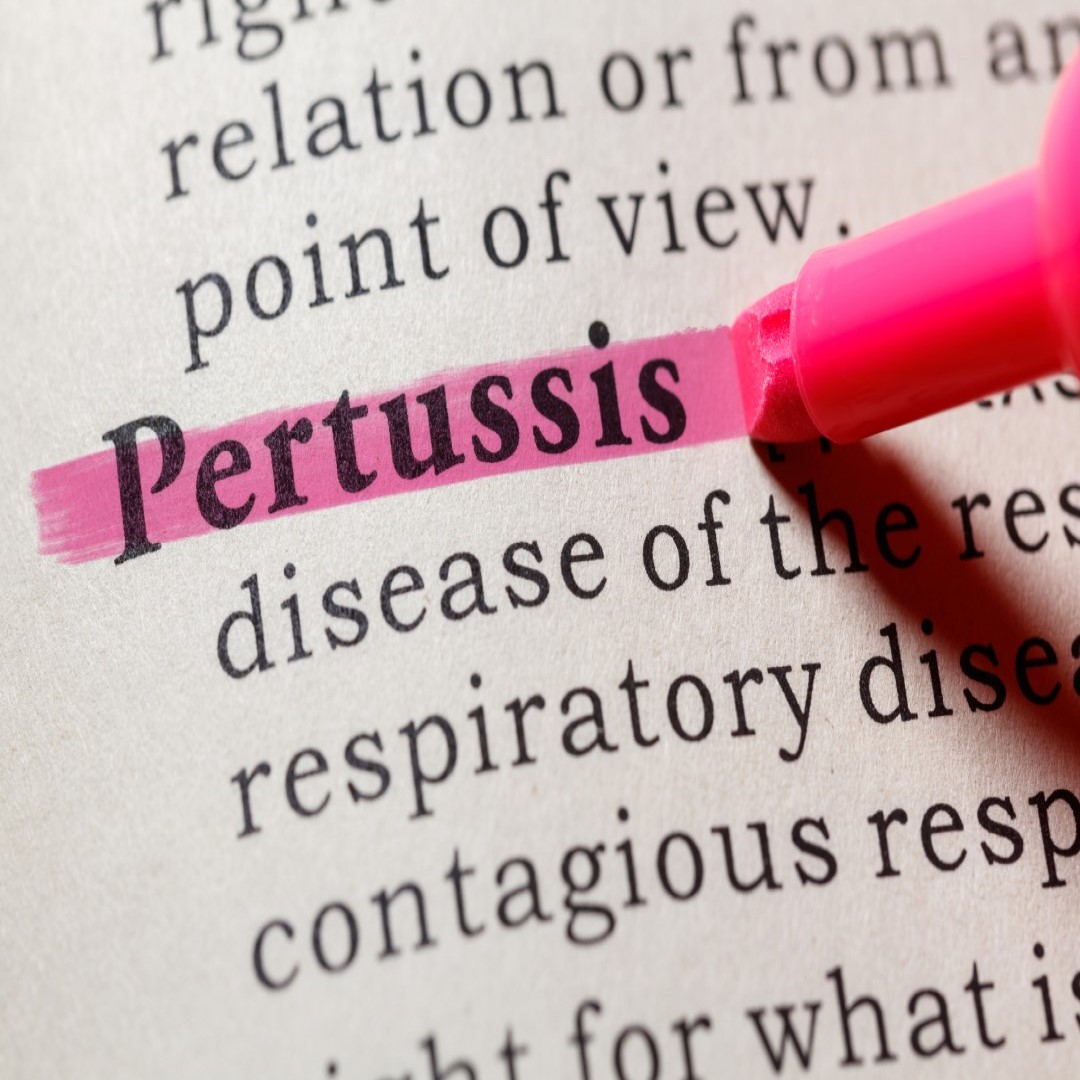
Whooping cough cases remain high across Louisiana
On May 2, 2025, the Louisiana Department of Health (LDH) reported an increase in whooping cough (pertussis) cases that could result in a record high for 2025 — more than has been seen annually in the state for at least 35 years. The Department has identified 164 cases in the first four months of 2025. In comparison, Louisiana had a total of 153 cases in 2024.
Whooping cough is a highly infectious disease caused by the bacterium Bordetella pertussis and spreads through respiratory droplets when an infected person coughs or sneezes.
The significant spread of whooping cough is leading to a corresponding increase in reported hospitalizations and deaths. Since September 2024, 40 people in Louisiana have been hospitalized with whooping cough. Seventy percent of those hospitalizations have occurred among babies younger than 1 year old. Sadly, two deaths have occurred among young infants hospitalized with whooping cough. These were the first whooping cough deaths reported in Louisiana since 2018.
Whooping cough is a highly contagious respiratory illness caused by the bacterium Bordetella pertussis. People with whooping cough commonly have severe coughing fits. This causes them to take deep breaths right after coughing, making a “whooping” sound.
Whooping cough spreads from person to person through coughing, sneezing, and close contact. Infected people can spread the bacteria from the start of symptoms and for up to three weeks after coughing begins.
Infants under the age of 1 year are most affected by whooping cough, showing the highest reported rates of infection and the greatest likelihood of severe complications and death, although the disease can occur in anyone. The bacteria that cause whooping cough are often unknowingly spread to infants by close family or caregivers.
Vaccination is the best way to prevent serious complications. The vaccines are effective, but protection fades over time. Two vaccines help protect against whooping cough: DTaP for children younger than 7 years and Tdap for older children, teens, and adults. Both also protect against tetanus and diphtheria.
Tags:
Source: Louisiana Department of Health
Credit:
